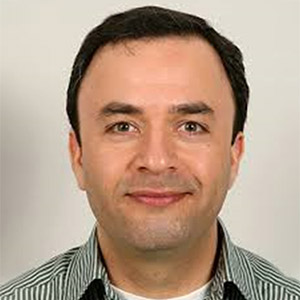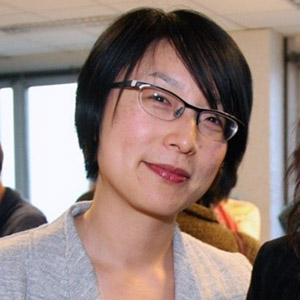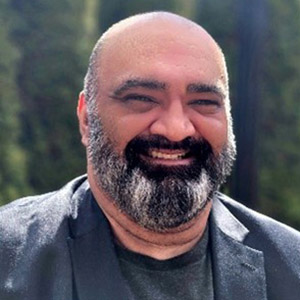Marking World Cancer Research Day 2024
Celebrating Canada’s contributions to cancer research worldwide
September 24 marks World Cancer Research Day. Recognized by major cancer research agencies and funders all over the world, including the CIHR Institute of Cancer Research, World Cancer Research Day is a global campaign that aims to promote the importance of coming together to advance cancer research. Much of the outstanding progress in cancer research that has been achieved to date can be attributed to the high level of scientific collaboration, cooperation, and knowledge exchange that has occurred among research communities across the globe.
With nearly 20 million new cancer cases and 10 million cancer deaths in 2022 aloneFootnote 1―cancer research continues to be an international team pursuit. The International Agency for Research on Cancer (IARC) plays a significant role in fostering global collaboration in cancer research. As part of the World Health Organization, IARC is a hub for cutting-edge research that supports an interdisciplinary focus on cancer prevention. The agency leads a number of initiatives to advance this mission worldwide, including its Monograph program, the Global Cancer Observatory, the IARC BioBank, among many other evidence-generating research projects.
A team of world-class scientists and staff from many countries, including Canada, support IARC’s diverse portfolio of programs. The contributions made by people from Canada take many forms―some work as staff at the agency’s headquarters in Lyon, France, while others make scientific contributions from their research institutions right here in Canada. Nevertheless, their work plays an important role in expanding the scope and depth of IARC’s impact on the global cancer research landscape.
In the spirit of World Cancer Research Day, the Institute of Cancer Research is celebrating the collaborative efforts made by people from Canada to IARC:

“As a cancer epidemiologist, I feel privileged to conduct research that will strengthen public health efforts and improve the health of populations across the globe.”
Mazda Jenab
Deputy Branch Head & Scientist, Nutrition and Metabolism Branch, IARC
Co-Lead, Onco-Metabolomics Team, IARC
The goal of IARC’s Nutrition and Metabolism (NME) Branch is to provide robust scientific evidence on the role of nutrition, obesity and metabolic dysfunction in cancer development that can translate into both clinical and population-level interventions, as well as public health policy.
Dr. Mazda Jenab is the Deputy Branch Head and Scientist in the NME Branch at IARC, as well as co-lead of the agency’s Onco-Metabolomics team. A cancer epidemiologist with extensive training in both nutritional sciences and molecular epidemiology, Dr. Jenab’s research focuses on exploring the etiology and underlying mechanisms of the development of gastrointestinal tumours, including gastric, hepatobiliary and colorectal cancers. Utilizing large, prospective observational cohort studies, such as the European Prospective Investigation into Cancer and Nutrition (EPIC) cohort, Dr. Jenab designs and implements research projects that aim to understand the role of metabolic, obesity-related and dietary factors in the development of gastrointestinal tumors. In leveraging the EPIC cohort, one of the world’s largest, multinational cohort studies, Dr. Jenab works with collaborators across several world regions to generate evidence for public health policies focused on nutrition and cancer prevention.

“Everyone who has been touched by cancer wants to understand how and why it happened. I am lucky that, early on in my studies, I met some inspiring mentors who helped me build the skills and experience needed to one day be able to investigate these pressing and important questions.”
Joanne Kim
Postdoctoral Scientist, Environmental and Lifestyle Epidemiology Branch, IARC
Several widely used pesticides are known or suspected endocrine disruptors, but there is limited human evidence that they cause breast cancer. In studies of farmers, assessing exposure only from pesticide application or mixing tasks, typically carried out by men, has contributed to the lack of evidence for female cancers. Activities such as pruning, cutting, and harvesting treated crops, also known as re-entry tasks, are an even more important source of pesticide exposure and need to be accounted for when examining cancer risk in farmers.
Dr. Joanne Kim, a postdoctoral scientist in the Environmental and Lifestyle Epidemiology Branch at IARC is working with international collaborators to examine whether exposure to certain pesticides causes breast cancer in female farmers. She is helping to conduct analyses on almost 200,000 female farmers and farmers’ wives participating in IARC’s AGRICOH, an international consortium of agricultural cohorts. Considering 71 different pesticide active ingredients, these analyses are seeking to understand whether female farmers’ risk of breast cancer is related to pesticide exposure from application, mixing, or re-entry tasks.
This work will provide the best human evidence for whether specific pesticides increase the risk of breast cancer, potentially identifying modifiable risk factors and thus leading to cancer prevention.
Dr. Kim is funded by a Postdoctoral Award from the Fonds de recherche du Québec.

“IARC’s publications are often the entry door for the public. As an international research agency, IARC has a serious responsibility to ensure that its knowledge is disseminated freely and widely in the mission to prevent cancer.”
Teresa Lee
Knowledge Manager, Services to Science and Research/Publishing, Library and Web Services, IARC
Scientific publishing is a cornerstone of IARC’s mission to carry out research for cancer prevention. In a publishing ecosystem that is challenged by sheer scale, technical complexity, mis- and disinformation, and eroding confidence in peer review, IARC takes its responsibility seriously to disseminate authoritative research. The Agency uses its convening power to bring together hundreds of international experts in the production of its flagship publications (WHO Classification of Tumours, IARC Monographs on the Identification of Carcinogenic Hazards to Humans, and IARC Handbooks of Cancer Prevention), global goods that are recognized for their relevance and quality.
As the Agency’s Knowledge Manager, Teresa Lee leads IARC’s library and central publications programme. This role includes the responsibility of maintaining the flow of high-quality information both into and out of IARC, ranging from subscriptions acquired in IARC’s library to all processes required to prepare any IARC publication. She also acts in an advsiory capacity to scientists at IARC, training and advising them on scholarly communications. At the Agency’s nexus of knowledge production, Teresa has developed a deep respect for the scientific work of her colleagues.

“Though it is not without its challenges, I truly believe that mechanistic research will unlock insights that prove invaluable to reducing the societal burden of cancer.”
Parveen Bhatti
Distinguished Scientist, Cancer Control Research, BC Cancer Research Institute
The long latency periods between exposure to carcinogens and cancer diagnosis makes epidemiologic research challenging. This challenge can be partly addressed by studying cancer mechanisms in exposed populations. Integral to IARC’s work in cancer prevention is its Monograph program, which evaluates the carcinogenicity of different exposures ranging from occupational to environmental to lifestyle. As part of IARC’s evaluation within Monographs, experts assess available evidence to identify possible mechanisms in which carcinogens cause cancer.
As a Distinguished Scientist in Cancer Control Research at the British Columbia (BC) Cancer Research Institute, Dr. Parveen Bhatti is an active scientific contributor to IARC Monographs. His expertise in epidemiologic studies of carcinogenic mechanisms has offered important insights to the program. He served on the 2024 Advisory Group to identify priority agents for evaluation, as well as contributed to the evaluation of the carcinogenicity of night shift work in Monograph Volume 124.
Dr. Bhatti is also contributing to a technical report that will aid future Monograph Working Groups in the interpretation of evidence from mechanistic studies. By improving IARC’s ability to identify carcinogens, we improve the ability of jurisdictions around the world to control or even eliminate carcinogenic exposures.
ICR would also like to recognize the recent leadership of scientists from Canada, including Dr. Marie-Élise Parent, Dr. Christine Friedenreich and Dr. Stephen Robbins, within IARC’s various governing and scientific bodies. The Institute would also like to acknowledge all of the many other individuals from Canada contributing to IARC in diverse capacities. The Canadian cancer research footprint could not be as extensive or impactful without your contributions.
- Date modified: